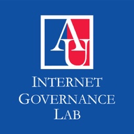On September 6 & 7th, 2019, I participated in a Cyber Policy Lab convened by Tandem Research in Goa, India on the Rise of Big Tech in India. The plenary session attempted to lay a broad roadmap for defining and conceptualizing Big Tech in India, focusing on its power and influence across policy circles and the everyday lives of Indian citizens.
The big questions that emerged from the plenary session were: (1) whether Big Tech is even a relevant category for India vis-à-vis the dominance of American and Chinese tech globally and in India, and (2) if India is ready institutionally (in the private and public sectors) to manage its growing digital economy and Big Tech writ large?
There was a recognition that while the use of the adjective "big" is not new, such as past narratives about big pharma, big tobacco, and big business, it carries a negative connotation in relation to tech, as evidenced in narratives ranging from "tech euphoria" to "tech lash." This is also largely driven by the power, scale, and speed of digital tech developments and the negative externalities of pervasive data collection that these systems are premised and rely on. To this point, one speaker noted how iconic US brands like Apple and Facebook began as countercultures that morphed into gigantic global cultural forces themselves. Meanwhile, others pointed out the degree to which Big Tech and the state are not as antagonistic as media narratives would have consumers and citizens believe. Indeed, even in the wake of the Snowden disclosures, American tech companies continue to partner with the Indian government's Digital India initiative, especially in rural India.
The first thematic session was an attempt to map the Indian Internet ecosystem across actors, interests, and influence. Intense debate ensued regarding whether Indian Big Tech is even a relevant category, not simply because of the dominance of US companies like Google, Facebook, Amazon, Microsoft, as well as China’s Alibaba, but more recently because of the influx of foreign equity and tech funding into India's start-up ecosystem from the likes of SoftBank, Tencent, and Google's Next Billion Users Unit. Some workshop participants likened these developments to the spice trade of the 1600s, which brought foreign traders to India and ultimately led to the establishment of British imperialism for 300 years. Similarly, some attendees argued that Indian public policy was historically driven by the top 10% of the urban educated elites who favored more left-leaning policies, but that the new India would have to include the aspirations and demands of a more diverse population who would make up the next billion Internet users and digital consumers. Another important insight focused on the extent to which research in India is led by tech companies as opposed to academic centers. This is partly due to increased funding of academic and civil society events and research from tech companies like Microsoft, Google, Facebook, and TikTok, including digital literacy programs in rural India.
Others opined on the myth that Big Tech and multinational corporations are against privacy. They argued that robust privacy policies are now viewed as a competitive advantage. Frighteningly, many pro-market and nationalist actors feel that for a developing economy like India, domestic entrepreneurial innovation should be stated by the government as a national priority and not be sacrificed to cater to individual privacy and data protection demands. These attendees recommended that technologists "infiltrate" government policy circles and "cultivate" influential actors in the policy space to educate legislators, policymakers, and bureaucrats about digital technologies to achieve more market-friendly policy objectives.
The second session focused on current policy/regulatory interventions and their likely consequences. The session began with a mapping of all the policies in place and in the pipeline including the IT Act of 2000, the proposed Personal Data Protection Bill, the draft e-Commerce Bill, the Reserve Bank's 2018 Notification of Storage of Data Policy, 2000’s draft Intermediary Liability Rules of IT Act,the draft ePharmacy Regulation, 2017’s FDI Policy, 2014’s National Telecom Policy, the Companies Accounting Bill of 2017, and the IRDAI Regulations regarding storage of data. Data localization was a major point of contention between the participants. Surprisingly, pro-market participants favored data localization on the basis of national sovereignty, while pro-rights participants favored the free and open flow of data. The latter group expressed surveillance concerns of an increasingly authoritarian state in India which had low judicial oversight mechanisms in place for personal data requests by government agencies and officials.
The third group discussion was an attempt to reimagine the digital economy beyond current and readily accepted narratives. There was a strong case made by digital rights activists that framing the space in terms of a "digital economy" limits policy debates to discussions of market failures and state interventions rather than expanding the space to include other social and cultural issues and stakeholders. One participant felt that in India three reimaginations of the digital economy have emerged around data localization, community data, and data as a public good — euphemisms that emphasize increased government control over citizens' data and the subsequent transfer of this data to the private sector. This is problematic as many state-market negotiations often lack transparency and accountability in India, which has a notorious reputation for crony capitalism. Another interesting conceptualization focused on the physical material extraction that feeds the digital economy, which is as exploitative of developing countries as the metaphorical extraction of personal data that fed the imaginaries of data colonialism.
Finally, there was a series of breakaway sessions on knowledge creation and policy needs for India. The discussions here focused mostly on the gig economy relating to global platforms like Uber and AirBnB and domestic players like food delivery app Swiggy, grocery aggregators like Big Basket, and personalized home services like Urban Clap. The following questions emerged: what kind of data governance standards needed to be put in place? Are labor standards and regulations up to speed with protecting the interests of these gig workers? Do they require sector-specific regulations? And how would anti-trust regulations safeguard the smaller players?
As is often the case at such fora, the two days of deliberations threw up more questions than answers. But what stayed with me was the active engagement on these issues by Indian actors from across the spectrum and some of the similarities of discussions I heard at US and European conferences. What surprised me was the willingness by some of the participants to sacrifice values of privacy and individual rights at the altar of a narrow concept of national development and sovereignty, a disturbing trend in the context of increasing political and social polarization and divisiveness. In this sense, Yochai Benkler’s vision of the Internet, in which networks would enable the free flow of information and encourage the democratization of the information economy and the online public sphere has failed. Instead, the political economy of Shoshana Zuboff's surveillance capitalism model of pervasive and exploitative data collection designed to surveil, target, and micro-target information seems to have won the day.






